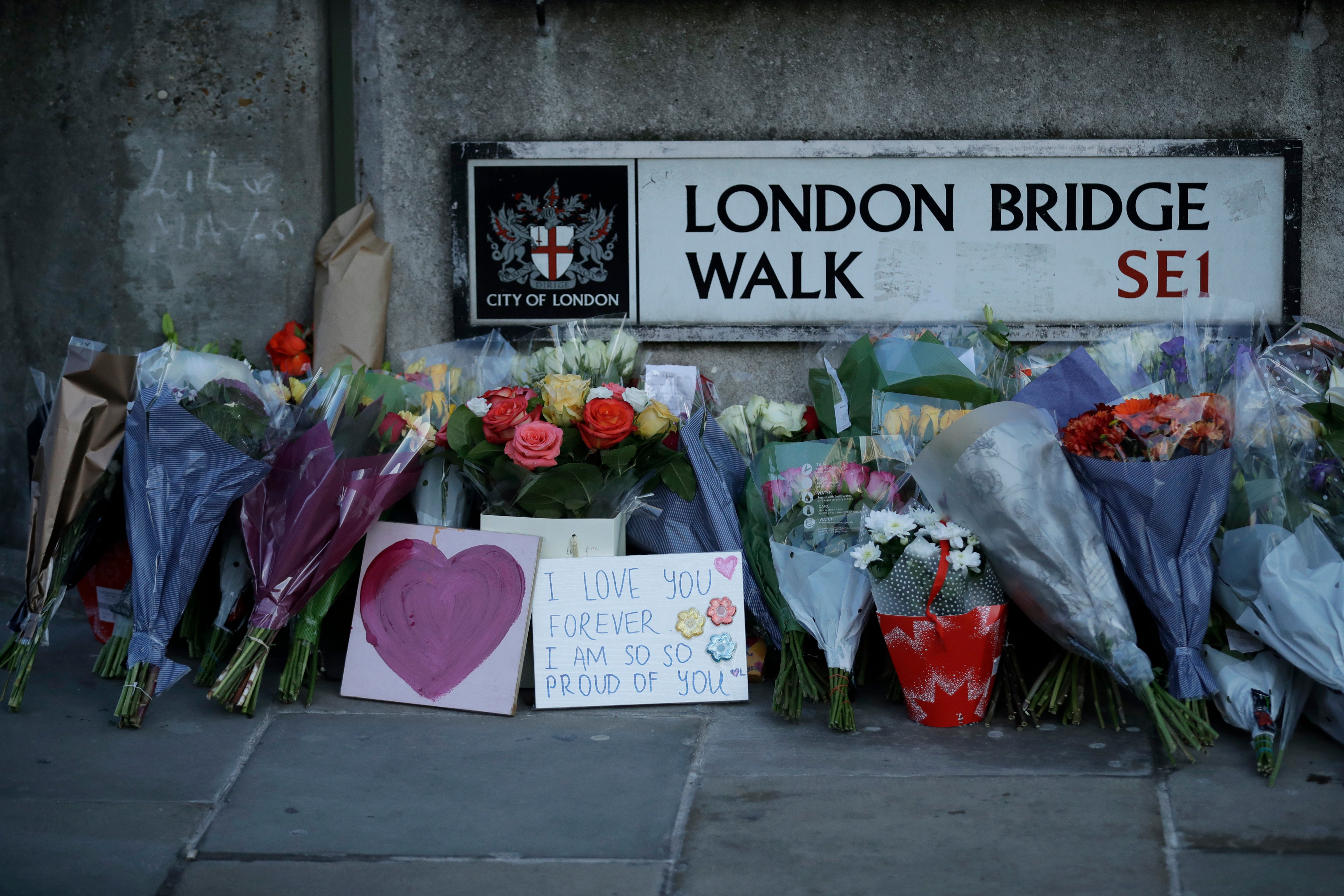Jury: Official failures played part in fatal London attack
An inquest jury says a string of failures by British authorities played a part in allowing an ex-convict who served time for terrorism offenses to kill two people in a knife attack in London

Your support helps us to tell the story
From reproductive rights to climate change to Big Tech, The Independent is on the ground when the story is developing. Whether it's investigating the financials of Elon Musk's pro-Trump PAC or producing our latest documentary, 'The A Word', which shines a light on the American women fighting for reproductive rights, we know how important it is to parse out the facts from the messaging.
At such a critical moment in US history, we need reporters on the ground. Your donation allows us to keep sending journalists to speak to both sides of the story.
The Independent is trusted by Americans across the entire political spectrum. And unlike many other quality news outlets, we choose not to lock Americans out of our reporting and analysis with paywalls. We believe quality journalism should be available to everyone, paid for by those who can afford it.
Your support makes all the difference.A string of failures by British authorities played a part in allowing an ex-convict who served time for terrorism offenses to kill two people in a knife attack in London an inquest jury concluded Friday.
Usman Khan carried out the November 2019 attack during a prisoner rehabilitation event he was attending at Fishmongers’ Hall. He killed two people and wounded three before he was chased onto nearby London Bridge and shot dead by police.
The inquest jury concluded there was “a lack of accountability and deficiencies in management” by police, probation and intelligence authorities overseeing Khan after his release from prison. They said authorities were blinded by Khan’s “poster-boy” image as a rehabilitated prisoner, when in fact he remained a committed extremist.
Inquests are held in Britain to establish the facts in cases of violent or unexplained deaths. The jury concluded that the two victims, Jack Merritt, 25, and Saskia Jones 23, were unlawfully killed.
Khan stabbed the two at an event run by the prisoner rehabilitation program Learning Together. Merritt worked for the program and Jones was a volunteer.
Khan was arrested in 2010 for being part of an al-Qaida-inspired plot to set up a terrorist training camp in Pakistan. He was given an “indeterminate” sentence that specified he could only be released when he was judged not to be a danger to the public. He appealed, and the sentence was fixed at 16 years. Like many British inmates, he was released after serving half that time, in December 2018.
A prison psychologist warned at the time that he was more dangerous to the public than when he entered prison, and provided a list of warning signs for authorities to monitor.
The domestic intelligence agency MI5 passed on uncorroborated intelligence to police that Khan was preparing to return to his “old ways” and aspired to carry out an attack. MI5 and counterterrorism police launched an investigation into Khan which was underway at the time of the attack, but Khan’s probation officer and the panel supervising his release were unaware of it.
He was allowed to travel alone to London to attend the Learning Together event, where he strapped knives to his hands and launched his attack.
The jury praised “astonishing individuals,” including other former prisoners attending the event, who fought back and disarmed Khan, using items including a fire extinguisher and a narwhal tusk displayed in the hall. Armed police soon arrived and shot Khan, who wore a suicide belt that turned out to be fake.
In a statement, the inquest jury expressed “heartfelt condolences to the families of Saskia and Jack, and to all who love and miss these two wonderful young people. They clearly touched the lives of so many, ours included.”
“The world lost two bright stars that dreadful day,” the jury said.